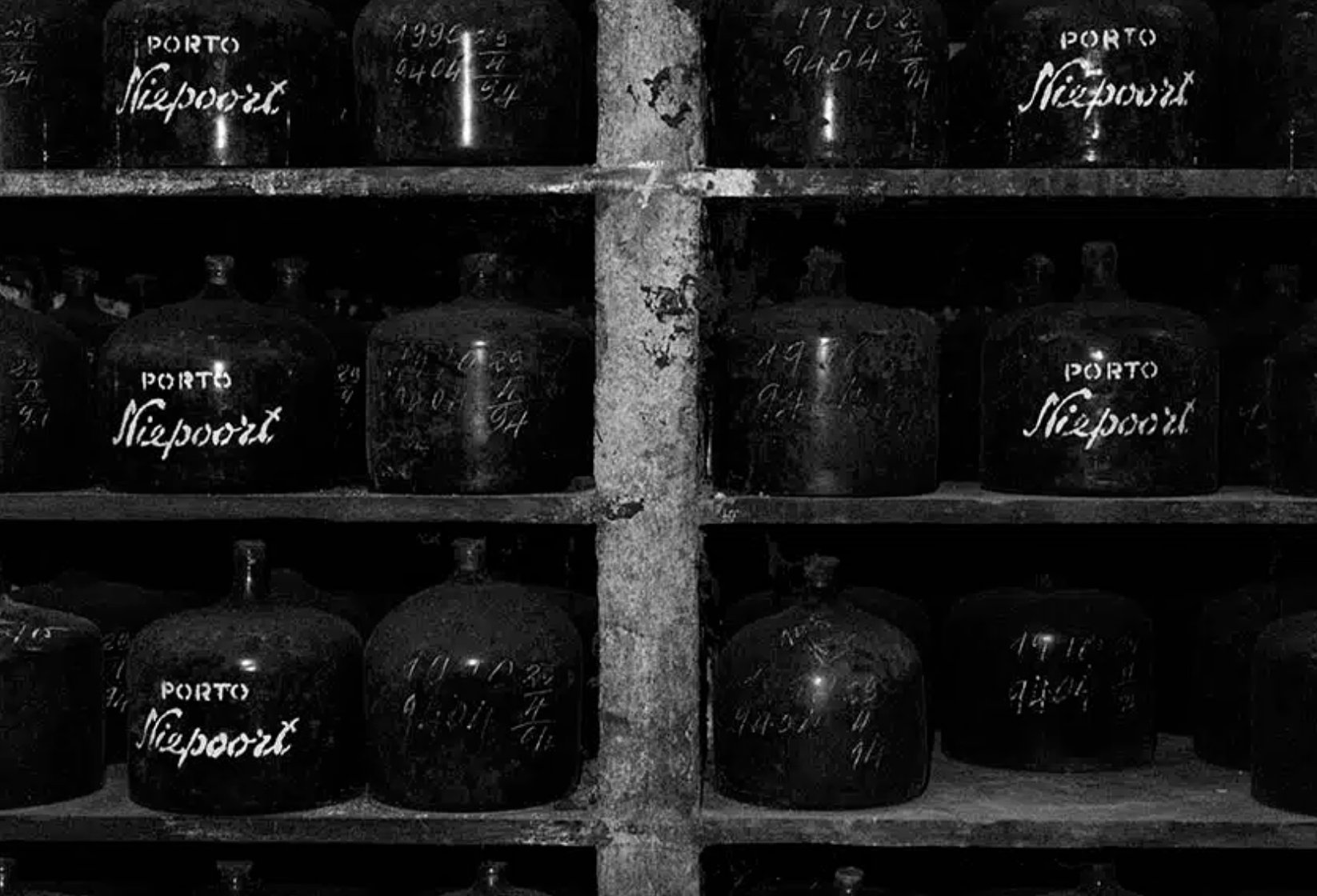Dirk Niepoort joins the Decanter Hall of Fame
Dirk Niepoort and his wife Nina Gruntkowski
Being elevated to the Decanter Hall of Fame is the wine industry equivalent of winning a Nobel Prize. In the 40 years of its existence, the prestigious annual award, which “honours those who have made significant contributions to the modern wine world”, has only ever been awarded to two people from Portugal: Paul Symington, in 2012, and, announced last week, the recipient for 2023, Dirk Niepoort.
Dirk van der Niepoort -‘Dirk’ as he’s referred to by much of the wine industry – an instantly recognizable figure, with curly hair worn long and a taste for flak jackets, is a free-spirit winemaker with a philosophy which embraces inventiveness and collaboration, and whose influence has spread far beyond Portugal.
Niepoort, who turns 60 next year, is the fifth generation descendent of a family of Dutch Port shippers who established their firm Niepoort Vinhos in Porto in 1842.
Softly spoken, calm and humorous, Niepoort is known for keeping a generous open table, at which viticultural and winemaking ideas are tossed back and forth like balls in a tennis tournament.
A maestro of branding with a penchant for giving his wines disruptive names and placing edgy labels on bottles, Niepoort presides over an orchestra of creative winemaking projects in several Portuguese wine regions and European countries.
At the end of the 1980s, the youthful Niepoort decided to defy the family Port-making tradition. Capitalising on the acquisition of two new Douro estates, Quinta de Nápoles and Quinta do Carril, he made the first Niepoort still wine, Robusta, released in 1990 at a time when production of Douro still wines was tiny compared with Port production. He says his father, the late Rolf Niepoort, “hated” this first wine.
Despite Rolf Niepoort’s hesitations, diversification of the venerable house of Niepoort had been set in motion. Dirk Niepoort recalls: “We have Port from the Douro, one of the best wines in the world, and I realized we could also make some of the best red and white wines in the world.”
In his opinion, the best vineyards for making Port are not the best for making still wine. North-facing higher vineyards are particularly good for making reds or whites, which need more even ripening, and not for Port, which does better with south-facing vineyards. “In the Douro, we’re used to living on the edge of too hot; however, with north-facing vineyards, we can correct this.”
Other Douro wine estates, which had hitherto only made Port, soon joined the quality still wine revolution: Quinta do Crasto, Quinta de la Rosa, the Symington family. A group of young wine producers, the Douro Boys, banded together to promote the new Douro wines in Portugal and abroad, and Niepoort naturally became a trailblazer in the group.
Niepoort has acted as a mentor and source of inspiration for many younger winemakers: Jorge Serôdio Borges, who worked for Niepoort for a few years, subsequently established his own winery with his wife Sandra Tavares da Silva, the now hugely successful Wine and Soul; the Spanish winemaker Susana Esteban, who makes superb wines in the Douro and Alentejo, also acknowledges Niepoort’s influence.
This is not to say Dirk Niepoort had thrown Port production out with the new still wine bath water. The Niepoort Port Vintage 2017 was awarded a jaw dropping 100 points by Robert Parker! Niepoort comments wryly: “If we look at the prices fetched by Burgundy and Bordeaux, the price of Port is ridiculous, especially if you look at the production costs involved.”
What of the famed Niepoort winemaking philosophy? “In the Douro, I’m looking for freshness, for a bit more lightness,” he remarks. “At Niepoort, we work with higher vineyards to get this freshness and tend to pick earlier than many of our colleagues.”
The Bairrada, with its versatile terroirs, has given him the opportunity to work with Pinot Noir, at Quinta de Baixo. All Niepoort vineyards are organically farmed, practising low intervention farming, while Quinta da Lomba, the Niepoort property in the Dão, is a fine example of biodiversity. Niepoort is also making wines in the Portalegre sub-region of the Alentejo with its cooler possibilities.
Dirk Niepoort is a celebrity, but his inclusive interest in others is palpable. He often speaks of the debt winemakers owe to previous generations. “It’s important to respect the old people, to observe what they did and how they did it.” This appreciation extends to frequent affectionate tributes to Rolf Niepoort.
And then there’s the inspiration he draws from working with other winemakers, frequently in different parts of Europe: the late Wilhelm Haag in Mosel or Telmo Rodriguez in different regions of Spain, for example. “It’s incredible how we grow and learn together. Soloists can be very good, but when you put the right people playing together, it can be magical,” he comments.
Niepoort believes an enjoyment of wine must be transmitted to younger generations of wine drinkers, in a period when wine sometimes struggles to compete with beer, cocktails or abstention. His answer is Nat Cool, a project with international winemakers to make playful wines of character, fun to drink, that respect terroir.
Many of these wines are single-vineyard and highly affordable. “In the end, we like it, or we don’t,” he remarks disarmingly about these ‘no fuss’ wines. Nat Cool is run by Dirk’s eldest son Daniel.
Ever curious, Dirk Niepoort has a deep interest in Asian cultures and, with his wife Nina Gruntkowski, pays regular visits to Japan. The couple are passionate about tea (Nina describes them as “tea fanatics”).
Chá Camélia is their passion project, the first commercial organic-certified tea plantation in Portugal, inspired by Japanese green tea production. The incredibly beautiful farm, at Fornelo in the Minho, is run by Nina. They had their debut tea harvest in 2019, a unique achievement among wine producers! In a delightful synergy, their teas are shipped in recycled Niepoort wine boxes.
James Mayor interviews Dirk Niepoort: I Love Douro Wines – Entrevista Dirk Niepoort – YouTube





